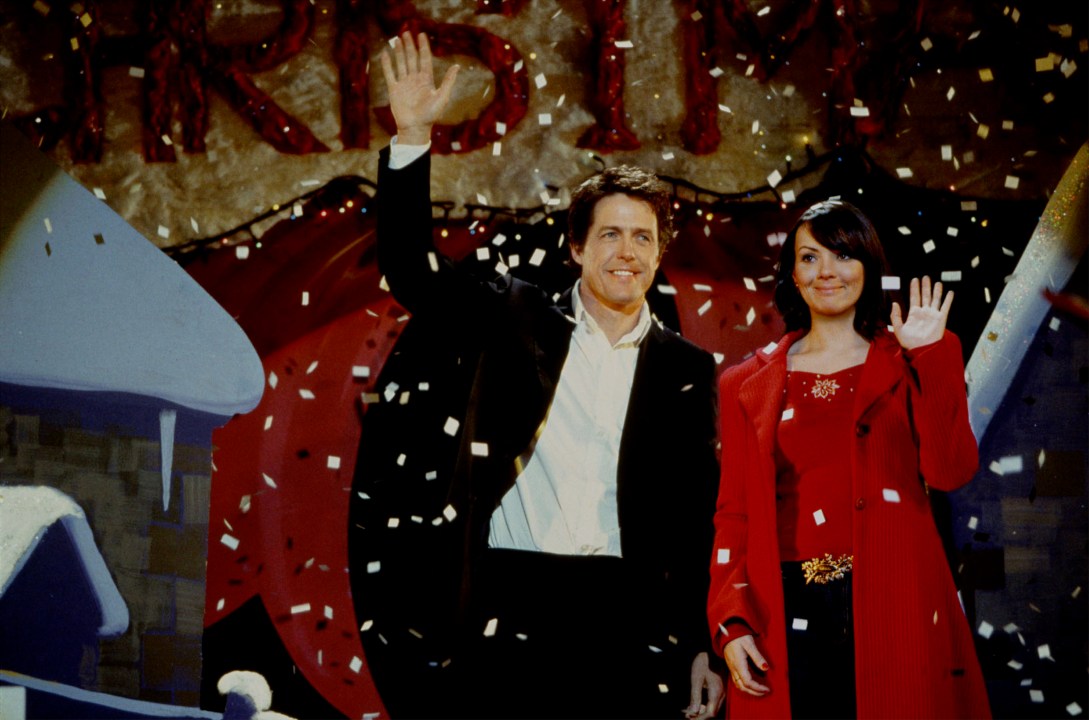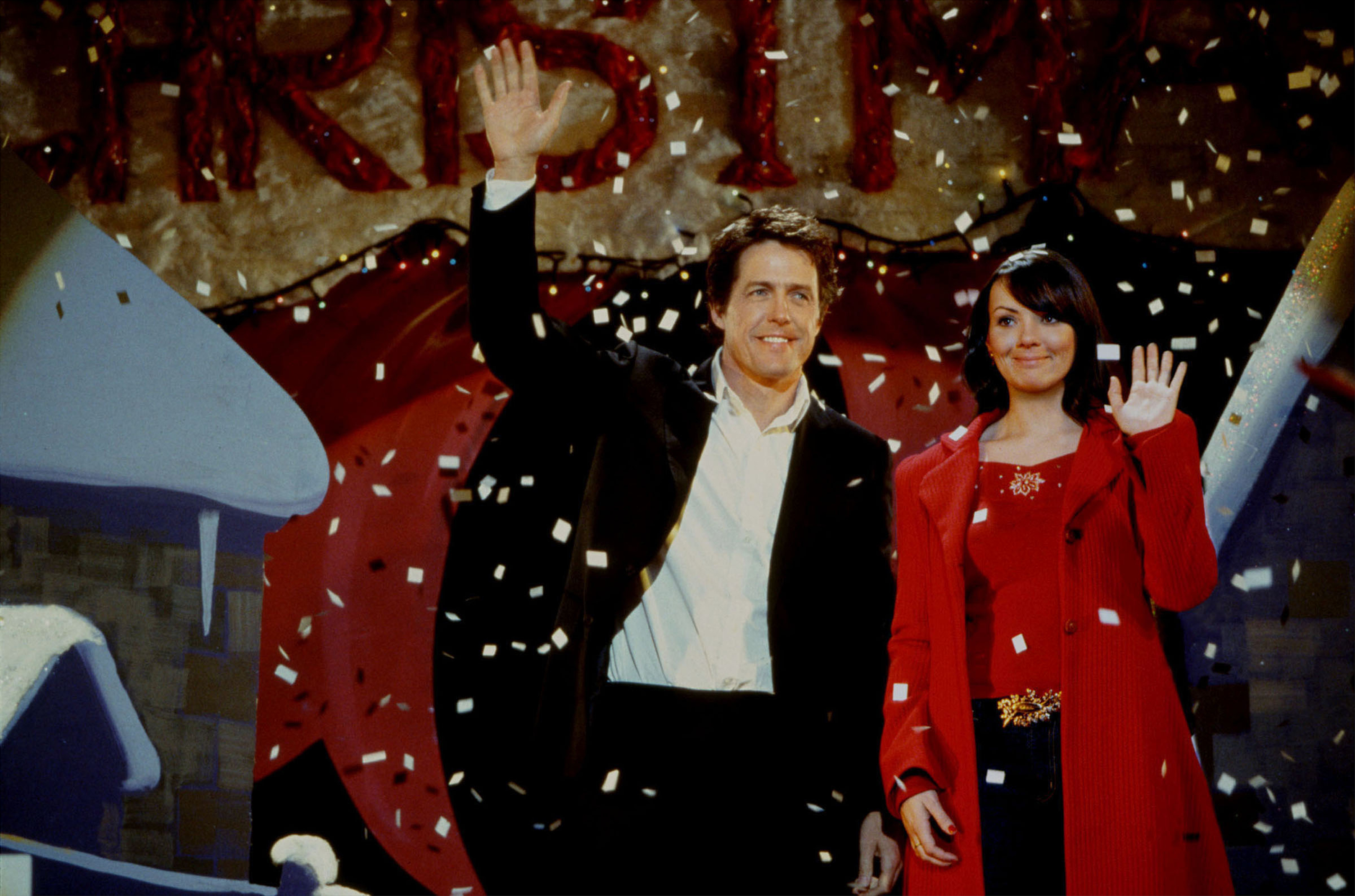One of the pleasures of fiction, be it book or film, is that it can take us to actual places beyond our own national boundaries – and into other worlds which don’t exist. Think of fictional states from Narnia to (Graham) Greeneland – and Richard Curtis’ London, that parallel version of our capital seen in Four Weddings and a Funeral, Notting Hill and Love Actually, where no one has ever seen a machete and swearing is only ever done in a jolly way. When I asked on social media for suggestions as to what this world might be called, I was inundated with suggestions. Curtistan, Curtopia, Notting Shill, Notting Swill, Treacletown and Englandland were among the non-obscene ones; my husband then weighed in with Smarming, Tweeford and – my favourite – Smarming-on-Twee.
It’s a desiccated England-land Disney-world by and for people who feel fear and loathing for their countrymen who do weird unpredictable things like desiring national sovereignty
Why do critics loathe this maker of apparently inoffensive films so much? And why does the prospect of an ABC News special reuniting the stars of Love Actually two decades later (including Hugh Grant, Emma Thompson, Bill Nighy and Curtis himself, plus a message from Martine ‘The Queen’ McCutcheon) turn otherwise civilised people into furious bundles of F-bombing? The one-hour special The Laughter & Secrets of Love Actually ‘will look at how the film became a beloved Christmas tradition and a global sensation, with new insight into behind-the-scenes secrets and iconic scenes. The special will also examine how the Covid-19 pandemic refocused the ways we love and connect and the omnipresent acts of kindness inside our families and communities.’ As if you couldn’t hate it more.
That I live in the city, Hove, on which the pointless pun was based, gives me an extra layer of loathing for this relentlessly festive five-bird-roast turkey of a film, and I wasn’t the only one; in the New York Times A.O. Scott called it ‘a romantic comedy swollen to the length of an Oscar-trawling epic… cheekiness, diffidence and high-tone smirking… more like a record label’s greatest-hits compilation or a very special sitcom clip-reel show than an actual movie… it has the calloused, leering soul of an early-60s rat-pack comedy, but without the suave, seductive bravado.’ But of course lots of people liked it. Written and directed by Curtis, with an ensemble cast of his favourite thespians, it took $246 million worldwide.
The surprising thing is how old the film looks – the Noughties seem like Swinging Sixties viewed from our post-Covid world. The one modern thing about it is the pleasing amount of various racial visibility, as no doubt Curtis took on board the scolding he got after making Notting Hill look as white as a Just Stop Oil demo. There’s a black DJ, a gospel choir and a gorgeous bridegroom who marries Keira Knightley – a clever move on Curtis’ part, the wedding alone necessitating that the groom’s family bumps up the BAME quota handsomely.
The elephant in the room is Tony Blair, emperor of Cool Britannia; Madeline Grant called the film ‘a Blairite hell-scape’ while Rupert Everett smirked that ‘Curtis was to Blair’s Britain what Leni Riefenstahl was to Hitler’s Germany.’ Hugh Grant attempts to distance his boyish PM from Blair by some unchivalrous cracks – ‘No scary wife!’ he assures staff when moving into No. 10 – and also with his embarrassingly ‘feisty’ anti-Americanism. Following Gordon Brown’s succession to Blair’s shabby Habitat throne, some pundits looked forward to a ‘Love Actually moment’ referring to the scene in which Grant’s David puts the sex-pest American president in his place. (This is the film’s surreal moment, when the age-old Anglo-American alliance hangs in the balance over who gets to snog Tiffany off EastEnders.) But his stand carries little weight, as you know the allegedly proud Brit PM would happily hand the radiant English maiden over to Jean-Claude Juncker for a drunken fumble, if that’s what it took to stay in the EU boy’s club.
The stench of our other country’s false consensus (especially the limits on what England is allowed to be – basically just a selection of pretty, powerless landmarks) is strong here. Somerset House, Grosvenor Chapel, Selfridges, the Tate Modern, the OXO Tower – all these places which in theory are open to the public, but which only a rarified strata of society ever see the inside of. You just know that all the ‘good’ characters would grow up to be Remainers; Liam Neeson with his dead wife, Colin Firth with his unfaithful fiancée, Emma Thompson with her cheating husband. I particularly enjoyed watching her character being betrayed, though the idea of these people having sex – no doubt using words like ‘willy’ – made me want to join a nunnery. Just a couple of moments remind us what the sad glory of love is actually like; Andrew’s wedding footage of Juliet marrying his best friend and the shimmering sorrow of the Sugababes ‘Too Lost In You’.
What would these characters be doing now? Well, there would have been a lot of boo-hooing over Brexit. Emma Thompson’s character would, like Thompson herself, not see the ocean-going snobbishness of writing off this country as a ‘tiny cake-filled misery-laden island’ or of flying thousands of miles from Los Angeles to protest about the impact of flying on climate change. Though Curtopia acknowledges that horrid things happen – Grant’s opening speech pontificates about the Twin Towers atrocity – there’s an overwhelming belief that the worst is behind us and we can all just bumble on together, the silly old sausages, because all you need is love.
How would Curtis handle the migrant crisis? The cost of living threat? The mental health tsunami inflicted by lockdown? The ongoing erasure of women’s rights in every area of life from trophies to toilets? No doubt he’d co-opt the #BeKind brainwashing, but thanks to our smashed consensus – which only ever benefited the privileged – he’d probably be a flop starting out today. The overwhelming feeling I got from rewatching Love Actually was of the cultural appropriation of my country – the country of any person born working-class, of every race and religion – by those who’d be just as happy in any country you could get organic food and cheap labour. Though Curtis and his cosseted Cambridge Footlights crew present themselves as just about as English as it’s possible to be, there is no place in their pampered pantheon for agents of English insurrection from the Roundheads to the Pistols, from Boudicca to Morrissey. It’s a desiccated England-land Disney-world by and for people who feel fear and loathing for their countrymen who do weird unpredictable things like desiring national sovereignty.
Curtis recently put his Notting Hill house on the market (‘Like the ravens leaving the tower!’ a neighbour gasped to the Mail) perhaps to spend more time at his 18th-century Suffolk home – and perchance to spend some of the profits made on a house reportedly worth £20 million compared to the £3.6 million he bought it for the year before the film was released, sending prices rocketing way out of reach out of the indigenous population. Like Lord Billy Bragg of Dorset before him, he wouldn’t be the first ageing liberal multimillionaire to end up in a postcode where machetes are never seen and people only swear in a jolly way. But if that means that he’ll stop making lame films selling the world his singularly wet and bankrupt view of our spiky, seditious and really rather splendid sceptred isle: good.








Comments